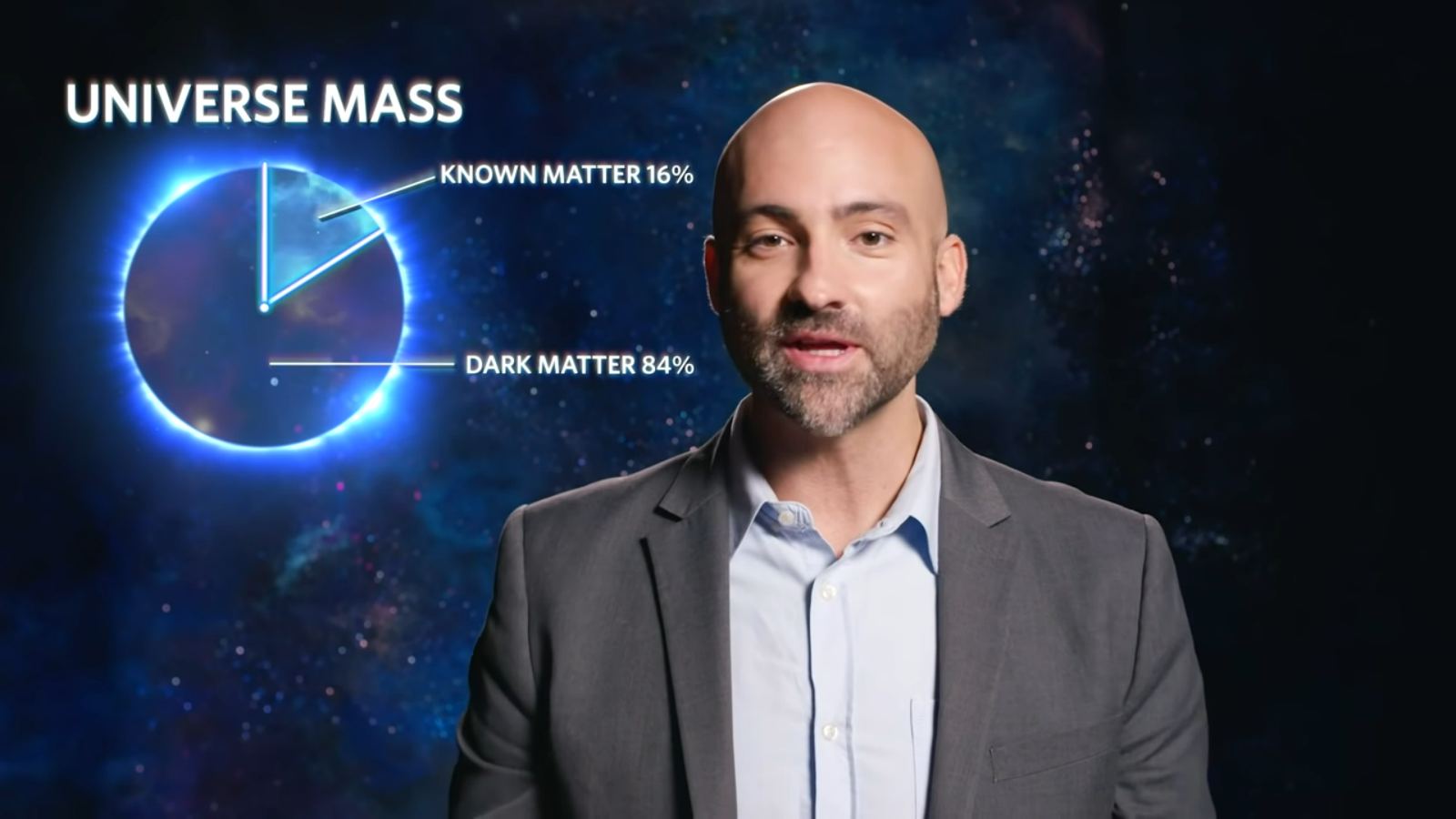Neutrinos are tricky little blighters that are hard to observe. The IceCube Neutrino Observatory in Antarctica was built to detect neutrinos from space. It is one of the most sensitive instruments built with the hope it might help uncover evidence for dark matter. Any dark matter trapped inside Earth, would release neutrinos that IceCube could detect. To date, and with 10 years of searching, it seems no excess neutrinos coming from Earth have been found!
Continue reading “IceCube Just Spent 10 Years Searching for Dark Matter”Using Jupiter as a Dark Matter Detector

The nature of dark matter has been a hotly debated topic for decades. If it’s a heavy, slow moving particle then it’s just possible that neutrinos may be emitted during interactions with normal matter. A new paper proposes that Jupiter may be the place to watch this happen. It has enough gravity to capture dark matter particles which may be detectable using a water Cherenkov detector. The researchers suggest using a water Cherenkov detector to watch for excess neutrinos coming from the direction of Jupiter with energies between 100 MeV and 5 GeV.
Continue reading “Using Jupiter as a Dark Matter Detector”Largest Dark Matter Detector is Narrowing Down Dark Matter Candidate
In 2012, two previous dark matter detection experiments—the Large Underground Xenon (LUX) and ZonEd Proportional scintillation in Liquid Noble gases (ZEPLIN)—came together to form the LUX-ZEPLIN (LZ) experiment. Since it commenced operations, this collaboration has conducted the most sensitive search ever mounted for Weakly Interacting Massive Particles (WIMPs) – one of the leading Dark Matter candidates. This collaboration includes around 250 scientists from 39 institutions in the U.S., U.K., Portugal, Switzerland, South Korea, and Australia.
On Monday, August 26th, the latest results from the LUX-ZEPLIN project were shared at two scientific conferences. These results were celebrated by scientists at the University of Albany‘s Department of Physics, including Associate Professors Cecilia Levy and Matthew Szydagis (two members of the experiment). This latest result is nearly five times more sensitive than the previous result and found no evidence of WIMPs above a mass of 9 GeV/c2. These are the best-ever limits on WIMPS and a crucial step toward finding the mysterious invisible mass that makes up 85% of the Universe.
Continue reading “Largest Dark Matter Detector is Narrowing Down Dark Matter Candidate”New Limits on Dark Matter

As it’s name suggests, dark matter is dark! That means it’s largely invisible to us and only detectable through its interaction with gravity. One of the leading theories to explain the stuff that makes up the majority of the matter in the Universe are WIMPs, Weakly Interacting Massive Particles. They are just theories though and none have been detected. An exciting new experiment called LUX-ZEPLIN has just completed 280 days of collecting data but still, no WIMPs have been detected above 9 Gev/c2. There are plans though to narrow the search.
Continue reading “New Limits on Dark Matter”Dark Matter: Why study it? What makes it so fascinating?

Universe Today has had some incredible discussions with a wide array of scientists regarding impact craters, planetary surfaces, exoplanets, astrobiology, solar physics, comets, planetary atmospheres, planetary geophysics, cosmochemistry, meteorites, radio astronomy, extremophiles, organic chemistry, black holes, cryovolcanism, and planetary protection, and how these intriguing fields contribute to our understanding regarding our place in the cosmos.
Here, Universe Today discusses the mysterious field of dark matter with Dr. Shawn Westerdale, who is an assistant professor in the Department of Physics & Astronomy and head of the Dark Matter and Neutrino Lab at the University of California, Riverside, regarding the importance of studying dark matter, the benefits and challenges, the most exciting aspects about dark matter he’s studied throughout his career, and advice for upcoming students who wish to pursue studying dark matter. So, what is the importance of studying dark matter?
Continue reading “Dark Matter: Why study it? What makes it so fascinating?”Missing Mass? Not on our Watch—Dr. Paul Sutter Explains Dark Matter
Do you have a few minutes to spare and a thirst for knowledge about one of the greater mysteries of the Universe? Then head on over to ArsTechnica and check out the new series they’re releasing titled Edge of Knowledge, starring none other than Dr. Paul Sutter. In what promises to be an enlightening journey, Dr. Sutter will guide viewers through an eight-episode miniseries that explores the mysteries of the cosmos, such as black holes, the future of climate change, the origins of life, and (for their premiere episode) Dark Matter!
As far as astrophysicists and cosmologists are concerned, Dark Matter is one of the most enduring, frustrating, and confusing mysteries ever! Then, one must wonder why scientists are working so tirelessly to track it down? The short answer is: the most widely accepted theories of the Universe don’t make sense without out. The long answer is… it’s both complicated and long! Luckily, Dr. Sutter manages to sum it all up in less than 15 minutes. As an accomplished physicist, he also explains why it is so important that we track Dark Matter down!
Continue reading “Missing Mass? Not on our Watch—Dr. Paul Sutter Explains Dark Matter”


